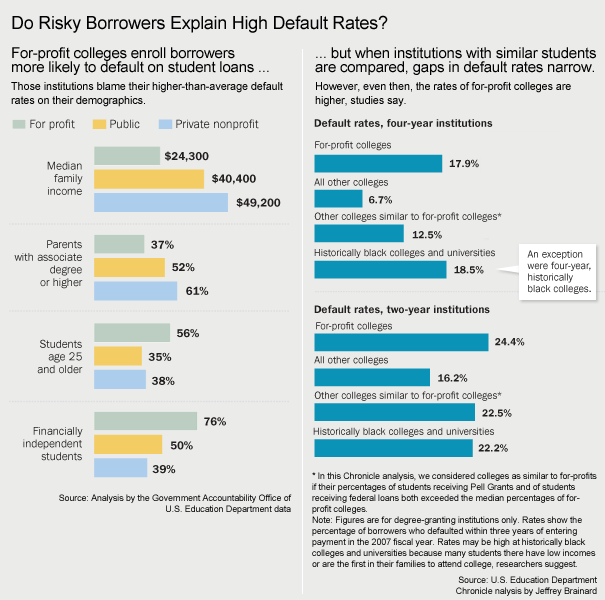New York (Dow Jones)--The U.S. Department of Education will issue clarifications on a series of higher-education regulations it released last fall, succumbing to pressure from colleges that say the rules are too complex to be implemented as published.
The agency will release "Dear Colleague" letters in an attempt "to answer questions we've heard about the regulations," deputy under secretary James Kvaal said. The topics to be addressed will include incentive compensation and state authorization, two particularly thorny issues for for-profit colleges.
"Dear Colleague" letters are published by members of Congress and various agencies to garner support for various initiatives, to alert employees of maintenance outages in government buildings, and to clarify rules soon to be put on the books.
The Education Department in late October issued 13 new rules, set to go into effect in July, addressing issues such as how colleges should measure a credit hour and possible punishment for misrepresenting information about a school's credentials.
Some of those rules aren't being challenged. But schools say it's unclear who is restricted from receiving bonuses under the incentive-compensation rule, which is intended to ensure recruiters don't enroll underqualified students to meet bonus targets. Many say they don't know whether the rule also would apply to football coaches who bring in top athletes or even chief executives who improve student retention and graduation rates. And state authorization, which would change the way state governments review school programs, could put a heavy burden on schools with online operations across the country.
The Association of Private Sector Colleges and Universities, a for-profit college-trade group, filed a federal lawsuit Friday requesting the Education Department be barred from implementing the rules as scheduled, at least until it addresses some of the trade group's concerns. The group, known as Apscu, represents more than 1,500 career colleges and took particular issue with the incentive compensation, state authorization and misrepresentation rules.
Meanwhile, the Education Department is scheduled to release the 14th and final rule, dubbed "gainful employment," some time this quarter. That regulation could punish certain programs for graduating students with high debt loads, an attempt at ensuring they train their students for legitimate jobs.
That rule has been the most controversial, and its issuance was delayed after the Education Department received more than 90,000 public comments in response to an early proposed version.
-By Melissa Korn, Dow Jones Newswires; 212-416-2271; melissa.korn@dowjones.com
Click here to go to Dow Jones NewsPlus, a web front page of today's most important business and market news, analysis and commentary: http://www.djnewsplus.com/access/al?rnd=LOn%2FmbIP8e4eUccMqqkucg%3D%3D. You can use this link on the day this article is published and the following day.
(END) Dow Jones Newswires
January 25, 2011 12:40 ET (17:40 GMT)
Copyright (c) 2011 Dow Jones & Company, Inc.- - 12 40 PM EST 01-25-11
.
The agency will release "Dear Colleague" letters in an attempt "to answer questions we've heard about the regulations," deputy under secretary James Kvaal said. The topics to be addressed will include incentive compensation and state authorization, two particularly thorny issues for for-profit colleges.
"Dear Colleague" letters are published by members of Congress and various agencies to garner support for various initiatives, to alert employees of maintenance outages in government buildings, and to clarify rules soon to be put on the books.
The Education Department in late October issued 13 new rules, set to go into effect in July, addressing issues such as how colleges should measure a credit hour and possible punishment for misrepresenting information about a school's credentials.
Some of those rules aren't being challenged. But schools say it's unclear who is restricted from receiving bonuses under the incentive-compensation rule, which is intended to ensure recruiters don't enroll underqualified students to meet bonus targets. Many say they don't know whether the rule also would apply to football coaches who bring in top athletes or even chief executives who improve student retention and graduation rates. And state authorization, which would change the way state governments review school programs, could put a heavy burden on schools with online operations across the country.
The Association of Private Sector Colleges and Universities, a for-profit college-trade group, filed a federal lawsuit Friday requesting the Education Department be barred from implementing the rules as scheduled, at least until it addresses some of the trade group's concerns. The group, known as Apscu, represents more than 1,500 career colleges and took particular issue with the incentive compensation, state authorization and misrepresentation rules.
Meanwhile, the Education Department is scheduled to release the 14th and final rule, dubbed "gainful employment," some time this quarter. That regulation could punish certain programs for graduating students with high debt loads, an attempt at ensuring they train their students for legitimate jobs.
That rule has been the most controversial, and its issuance was delayed after the Education Department received more than 90,000 public comments in response to an early proposed version.
-By Melissa Korn, Dow Jones Newswires; 212-416-2271; melissa.korn@dowjones.com
Click here to go to Dow Jones NewsPlus, a web front page of today's most important business and market news, analysis and commentary: http://www.djnewsplus.com/access/al?rnd=LOn%2FmbIP8e4eUccMqqkucg%3D%3D. You can use this link on the day this article is published and the following day.
(END) Dow Jones Newswires
January 25, 2011 12:40 ET (17:40 GMT)
Copyright (c) 2011 Dow Jones & Company, Inc.- - 12 40 PM EST 01-25-11
.

No comments:
Post a Comment